‘The Hobbit’ Story Group 3: A Short Rest
Do your fantasy-world Elves sing “tra-la-la-lally” from treetops? J.R.R. Tolkien’s do. And just recently while re-reading The Hobbit, I found I’ve finally grown accustomed to this concept.
Here’s the Elven poem’s finale from chapter 3, our first visit to the Elven realm of Rivendell:
O! Where are you going?
So late in returning?
The water is flowing!
The stars are all burning!
O! Whither so laden,
So sad and so dreary?
Here elf and elf-maiden
Now welcome the weary!
With tra-la-la-lally
Come back to the Valley,
Tra-la-la-lally
Fa-la-la-lally
Ha ha!
Tolkien’s Elves aren’t the spritely dwarf-like creatures who either make toys at the North Pole or manufactured cookies inside a computer-animated hollow tree. They’re a race of more-transcendent beings, ancient and wise, noble and courageous and good and serious.
Or are they? Tra-la-la-lally.
Well, they weren’t that silly in The Lord of the Rings film adaptations, the thought may occur. In that case, I have a compound word of rebuttal: shield-surfing.
Tolkien’s Elves are all over the place. They’re not angels, and they’re not devils. They’re not human; they’re not animals. They are immortal yet can die of battle injuries, broken hearts, or even their own tragically stupid choices. Elves were the first created-beings for Middle-earth. They have an “original sin” history, as we know from the epic told in The Silmarillion. Elves have compromised with evil, built secret xenophobic fortresses to keep out evil and all other outsiders. Elves in The Hobbit alone range from silly (the tra-la-la-lally band) to serious (Elrond) to noble yet greedy (the Elves of Mirkwood and their king, Tranduil).
In that sense, perhaps Elves are more human than they, or we, would like to admit. Without falling into the “it’s all allegory” trap, we might nevertheless suggest they are the “special people” of Middle-earth, a la Old-Testament Israel or New-Testament Church. They are meant to help redeem creation and other peoples in turn. How do they do this?
What informs Bilbo’s high view of Elves in The Hobbit, and in the rest of Tolkien’s works?
Chapter 3: A Short Rest
- Read chapter 3, the whole chapter.
- For those familiar with The Lord of the Rings, In this chapter, as well as the last, Tolkien is not nearly as detailed with his descriptions of geography. Why do you think that is?
- Tolkien is, however, detailed with descriptions. Do you as a reader tend to take your time with these, perhaps trying to imagine what the world looks like? Or do you maybe tend to read quickly (or even skip?) to get back to action or dialogue?
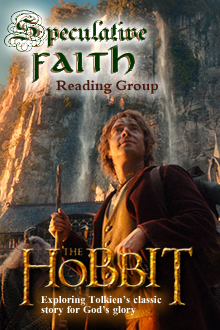 How do you imagine Elves? Little cartoon men in a tree who make packaged cookies? Pointy-eared staffers at the North Pole who assemble Christmas presents? How have you pictured “elves” from other stories, and how are they different from Tolkien’s view of them? After reading the Elves’ ridiculous song, how would you describe them?
How do you imagine Elves? Little cartoon men in a tree who make packaged cookies? Pointy-eared staffers at the North Pole who assemble Christmas presents? How have you pictured “elves” from other stories, and how are they different from Tolkien’s view of them? After reading the Elves’ ridiculous song, how would you describe them?- So they laughed and sang in the trees; and pretty fair nonsense I daresay you think it. Not that they would care; they would only laugh all the more if you told them so. (page 47) Thought: Tolkien’s Elves, at least here, seem to demonstrate a quality I would call “holy (H-O-L-Y) ridiculousness.” What do you think about this term? Is it a good one?
- They were elves of course. Soon Bilbo caught glimpses of them as the darkness deepened. He loved elves, though he seldom met them; but he was a little frightened of them too. (page 47) Why feel this way? What else do we know that is joyful yet frightening?
- Dwarves don’t get on well with them. Even decent enough dwarves like Thorin and his friends think them foolish (which is a very foolish thing to think), or get annoyed with them. For some elves tease them and laugh at them, and most of all at their beards. (page 47) Why do dwarves not like Elves? Is there a “bad guy” in that conflict? What are the two peoples’ differences? And why does Tolkien say it’s foolish to think Elves foolish?
- For those familiar with Tolkien’s other works, do the Elves here seem different from the more-serious and ancient Elves of The Lord of the Rings or even The Silmarillion?
- [Elrond’s] house was perfect, whether you liked food, or sleep, or work, or story-telling, or singing, or just sitting and thinking best, or a pleasant mixture of them all. Evil things did not come into that valley. (pages 49-50) Would you like to go to Rivendell? How come?
What do you think of the two swords’ names, their powers, and ancient histories?
































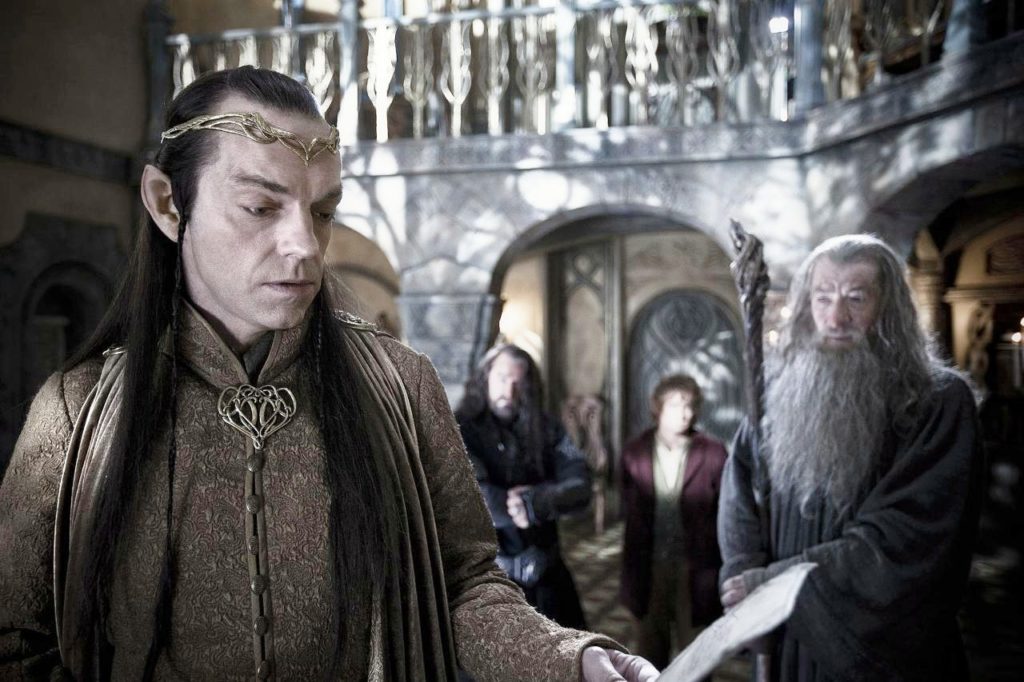

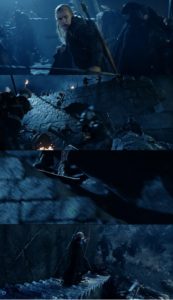

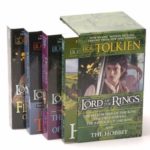
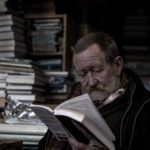
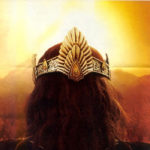
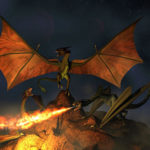



Well, as for the question of elves, my elves sing, and sometimes the do sing nonsense (my username is a reference to my stories, as yet unpublished, and not my real name) but not on a regular basis. And what was WITH that shield surfing thing? That’s nearly as silly as flying Jedi! (no offense to any Star Wars fans) If the point was to make Legolas cooler, it just made him look… well slightly lame, surely he could have hit those orcs from the parapet. Also I wish he had worn his hair in a full braid, the long loose hair was just impractical. Anyway…
2: This was likely because he hadn’t worked it all out yet.
3: I love the descriptions and try to copy that style, but it does get old after a while.
4: When I was younger, I thought them analogous to fairies, with beautiful sumptuous clothes and butterfly wings, but I realized they where different creatures entirely, and began to think of them as beautiful human-like creatures who lived under hills and could be good or bad as in the old Celtic tales, and I thought the good elves would fight the bad elves on behalf of human kind. This passage shows them to have great senses of humor, and to be fun-loving, much like us actually.
5: That’s a pretty good word for it. God doesn’t want us to be serious all the time, otherwise he wouldn’t have given us the ability to laugh! my brother says God must have a sense of humor, otherwise he wouldn’t have made the okapi or the platypus! Also C.S. Lewis used this in Prince Caspian when Aslan and the girls went on their romp with Bacchus through Beruna.
6: He had good reason, it’s the same thing with our love of angels or Christ himself. The Gospel is joyous and frightening and the Shepherds found the rejoicing angels frightening.
7: Clearly the Dwarves need to lighten up from a little teasing, but clearly they are on the same team, it’s just that the dwarves and the elves have many differences. (Re: “a plague on the stiff necks of the dwarves!” Legolas, Fellowship) Even though the elves like to have fun, it’s made clear by the Battle of the Five Armies that the elves fighting skill is nothing to sneeze at and they can be dangerous.
8: These may be young elves who really know nothing about the old wars as Elrond does, or they may be just very happy, they know the Shadow is not here yet. If you notice Legolas is a very cheerful guy in the Fellowship of the Ring, so it may depend on personality on how chipper the elves are.
9: You bet I would! Rivendell seems like the place for me I like all those things and the fact that evil things couldn’t come there is a comfort as well.
The sword’s names are great, and their powers wonderful too, who wouldn’t want to know the enemy is sneaking up on you?
That’s a great point that you beat me to. 😉 The portrayal of the elves here is very reminiscent of Lewis’s recurring theme of serious, holy joy.
I’d love to interact with much of this. (By the way, ionaofavalon, does your name at all reference my recent-favorite Irish prog rock/synt Christian group Iona?)
Well, I thought it looked great. 😀 Yet it was Howard Shore’s triumphant version of the Fellowship theme that pressed the moment into over-the-top-yet-classic status.
In my first Fellowship reading — I read The Lord of the Rings before The Hobbit! — I could not separate Tolkien’s Elves from the Santa’s-elves imagery. It might not have helped that I missed his descriptions of them as tall and almost “angelic.” Thus I could not discern, at first, why other peoples held the Elves in such reverence.
Very similar to what I was thinking. Alas, evangelicals often miss the absolute Biblical blend of joy and seriousness, hedonism and holiness. We feel we must choose between one or the other. It wasn’t only Lewis and Tolkien who believed otherwise; such a belief (while not neglecting sin and suffering) is firmly Biblical.
Dibs on a Rivendell Resort replica, in the resurrected New Heavens and New Earth.
(I would have also called dibs on an in-orbit Enterprise replica, complete with spacedock, yet I believe Heaven author Randy Alcorn (no joke) called it first. However, he did not specify original-series Enterprise, TOS film-series Enterprise-A, or The Next Generation‘s Enterprise-D. So I shall call dibs on Enterprises D and E.)
Yes and no. My Dad is a big Iona fan as well, but I thought that Iona was a beautiful Irish name. At first the character’s name was an embarrassingly bad made-up name. But after some time I named my elf (that’s what she is) the proper Irish name Iona. Let me tell you that I went through many many Irish names before I found the right one!
I have not recently read LotR in order to compare, but I don’t think this chapter seem non-descriptive, at least not in terms of physical geography. There is a lot of description of the terrain leading to Rivendell. Rivendell itself is less well described; maybe Tolkien was apologizing for his more distant treatment of Rivendell with this sentence:
“Now it is a strange thing, but things that are good to have and days that are good to spend are soon told about, and not much to listen to; while things that are uncomfortable, palpitating, and even gruesome, may make a good tale, and take a deal of telling anyway.” (p. 51).
I really like the descriptions. To me, a lack of descriptiveness is a mark of a second-rate novel. I was just fuming in my not-yet-published review of Terry Brooks’s Elfstones of Shannara about how the battle cries that are being shouted on the field of battle are not specified. Brooks never tells what the warriors are shouting, just that they have “battle cries”! But I digress; Tolkien is the real deal. 😉
The jolly North Pole employees might truly emoby one small facet of Tolkien’s elves, as this chapter reveals. However, it would be more accurate to say that the folklore from which Santa’s elves grew out of embody one facet of Tolkien’s elves. At any rate, the majesty and seriousness of the elves is very apparent in this Chapter.
This is a little off topic, but this might be the best place to ramble about Elrond. The movies clearly got him wrong. He’s not arrogant, and he’s only half elvish, even though he has chosen the Fate of the Elves rather than that of Men. I was surprised a moment ago upon re-reading The Hobbit‘s introduction of Elrond; it does not introduce him as an “elf-lord” but as an “elf-friend,” with “both elves and heroes of the North for ancestors” (p. 51).
Elrond also demonstrates the earnestness of the Elven spirit. Notice Elrond’s empathy when he looks at Thorin’s map:
“He took it and gazed long at it, and he shook his head; for if he did not altogether approve of the dwarves and their love of gold, he hated dragons and their cruel wickedness, and he grieved to remember the ruin of the town of Dale and its merry bells, and the burned banks of the bright River Running.” (pp. 52-53).
Elves can feel the spiritual reality of the world, I think. Thus, they sing and rejoice in perfect harmony with nature, and they suffer keenly from evil. I think this explains both their “silliness” and their seriousness.
My theory re: Elves in the Hobbit
They are young and drunk. Except for Elrond
Hmm… maybe. Later in Mirkwood, we see some of that, I think. However, I think this rowdy/jolly elvish behavior is an inherent part of their race. The Silmarillion doesn’t necessarily recount any jovial elvish songs like the one from this chapter in The Hobbit, but it does seem to imply (at least to me, at least as far as I remember rightly) that normal elvish life consists of joyfully frolicking in the woods. There was one shy elvish maiden, mentioned in the passing, who witnessed a murder or something like that. When called before King Thingol, she meekly began her testimony by saying, “I was sitting in a tree…” to which Thingol laughed and said, “Many have done the same, and not felt the need to inform me…” or something like that.
For me, the embodiment of elves is Deedlit, the heroic elf from the 1990s anime series Record of the Lodoss War. I don’t think I’ve ever seen any character become as visually iconic as her, or her dark elf counterpart. I recommend seeing that series if possible; so many of the tropes of videogames, anime, and other things draw their influence from it. If you ever wonder where the whole “giant shoulder pads” thing comes from, there’s a good argument it’s from that series.
Whenever I imagine an elf, I imagine Parn seeing her for the first time, as he is surrounded by a cyclone of leaves. Or her playing her lute on top of the castle walls. Tolkien’s elves in the hobbit are more like the old elves and how they often blurred between what we’d call fairies, and really don’t pack much punch for me.
From reading the Hobbit as a child, I assumed for years that Tolkien’s elves (at least the Rivendell ones) were pixie-like creatures. I still do find it hard to hold them together with the LotR ones. Elrond also does seem different. There’s no mention in the Hobbit that he is a half-Elf.